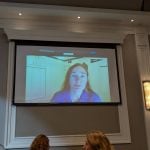A coalition of Canadian activist groups is launching a campaign aimed at forcing the federal government to give citizens more say in trade negotiations.
The focus of their campaign will be the upcoming World Trade Organization talks.
Tony Clarke, veteran anti-free trade campaigner and director of the Polaris Institute, told an Oct. 20 news conference the WTO has become a new form of world government that is not accountable to voters.
“Citizens are not really involved,” he said.
Along with the environmentalist Sierra Club, the Council of Canadians and the Canadian Labor Congress, Polaris said new talks may open up Canadian policy areas such as health, education and agricultural programs to more foreign challenge or competition.
Read Also

Farmland advisory committee created in Saskatchewan
The Saskatchewan government has created the Farm Land Ownership Advisory Committee to address farmer concerns and gain feedback about the issues.
“The WTO is the world’s most powerful but least democratic international institution,” said Sierra Club deputy director Angela Rickman.
The previous day, the Canadian Centre for Policy Alternatives helped launch a book by British Columbia environmental lawyer Steven Shrybman on the evils of world trade rules.
Shrybman said trade negotiators consider all items to be tradable commodities. He said it could mean the end of a country’s ability to organize farm programs such as supply management and farm supports.
He told a Parliament Hill news conference that the mere threat of challenge under WTO rules means governments censor themselves by avoiding policies that might be attacked.
“This self-censorship is arguably the WTO’s most pernicious influence,” he said.
Citizens should become “trade literate” so they can fight against agreements that limit their government’s ability to create policies, said Shrybman.
Maude Barlow, of the Council of Canadians, said there is little chance the WTO negotiations can be derailed, as was the proposed Multilateral Agreement on Investment last year.
Still, she said governments around the world can be forced to consider what their citizens want, and not just business interests.
Announcement of the Canadian anti-WTO lobby campaign came as the Washington-based Worldwatch Institute reported that citizens groups worldwide are demanding and exerting more influence over the decisions of governments and business. Millions of non-governmental organizations have been created around the world in recent years.
“The proliferation of these groups and the spread of their influence have been very rapid,” Curtis Runyan reported in the Worldwatch magazine.
He said the campaign against genetically modified foods is a prime example. It will play a role in Seattle, Wash., when world governments gather in late November to launch a new round of negotiations.
“The biggest story in Seattle may not be the WTO and its trade negotiations, but the influence that citizen protests around the world … exercise over one of the most powerful yet least accountable transnational organizations.”














